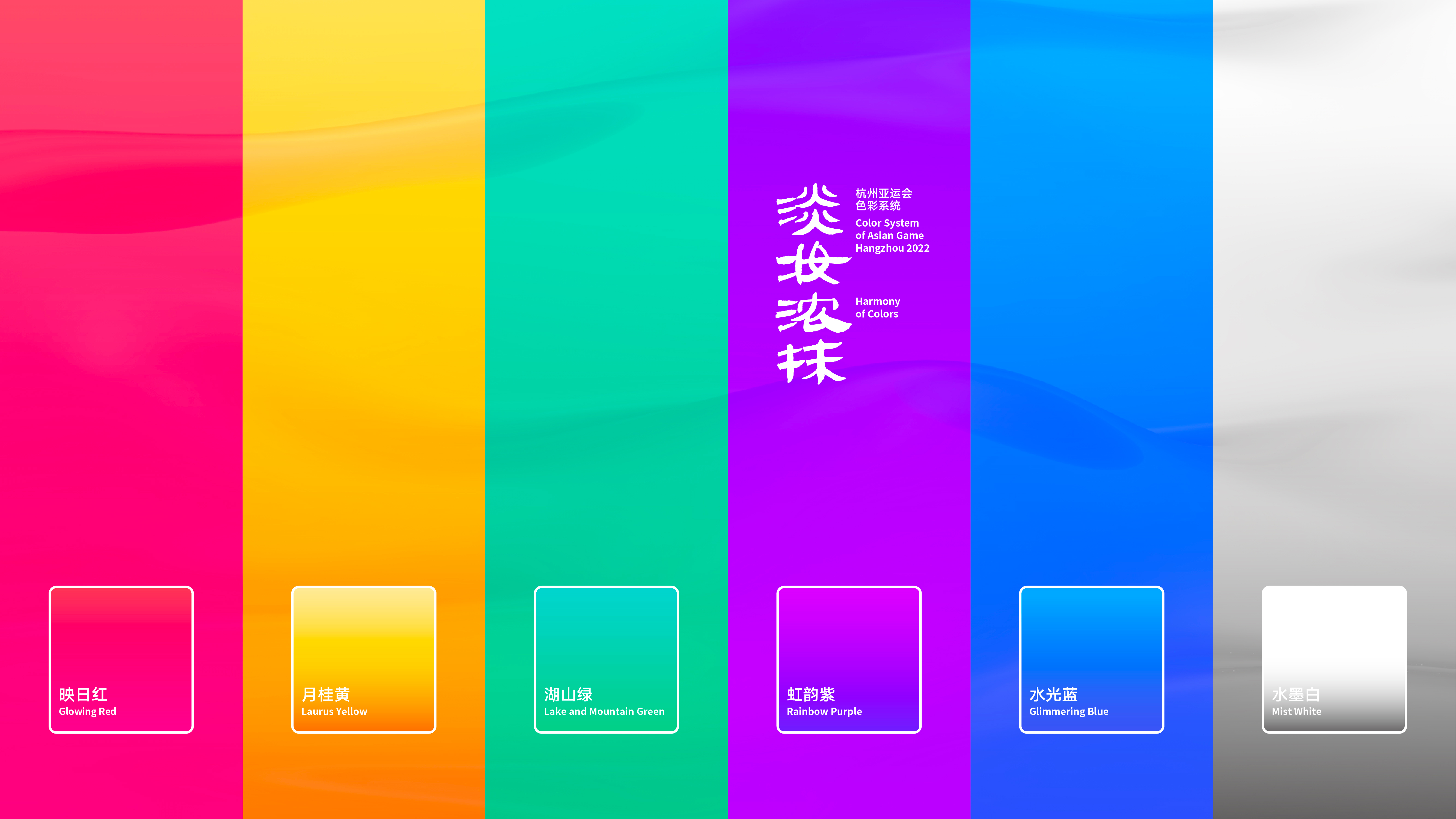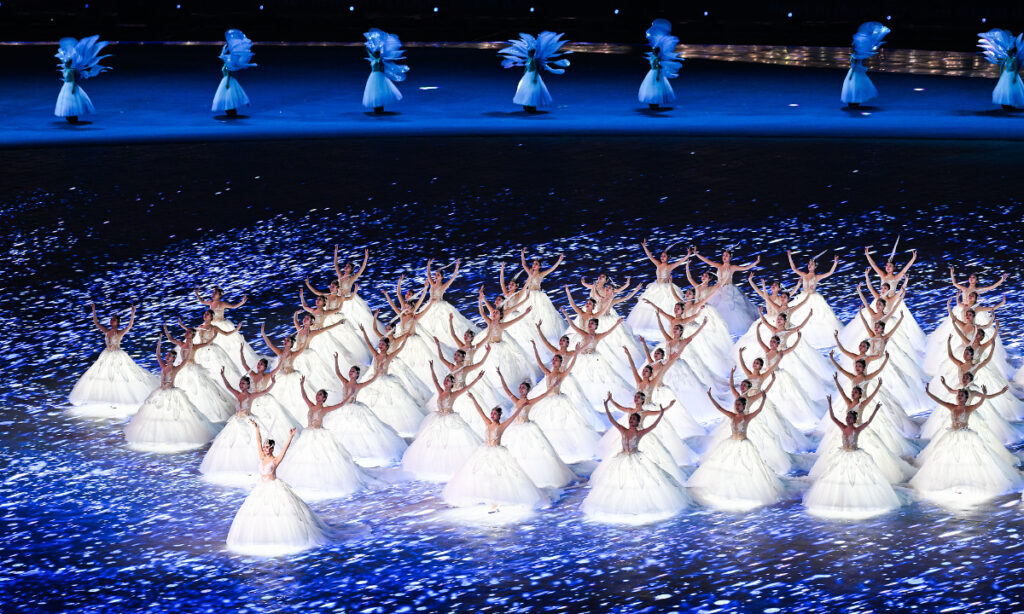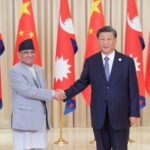The colorfully decorated opening ceremony of the Hangzhou Asian Games has thrilled the audience both on-site and around the world as a six-color hanging screen has become the key focus, illustrating the vitality of the Games and reigniting the glamor of Chinese poetry.
The six colors – Glowing Red, Laurus Yellow, Lake and Mountain Green, Rainbow Purple, Glimmering Blue and Mist White – were unveiled as the theme colors for the Hangzhou Games in 2010.
Chinese poetry is the source of inspiration for the theme colors. Collectively entitled Harmony of Colors, with its Chinese name Danzhuang Nongmo inspired by a poem by Song Dynasty (960-1279) poet Su Shi, each of the colors was inspired by a poem describing the host city Hangzhou.
Rainbow Purple, the main color not just for the Asian Games but also for the decorations of the city, was inspired by a line by Tang Dynasty poet Bai Juyi (772-846) in his poem Memories of Jiangnan: “At sunrise riverside flowers more red than fire; In spring green river waves grow as blue as sapphire.”
Lake-and-Mountain Green, the most used color for the decorations at the opening ceremony as well as ball sports games, was cited in a line from a poem penned by Gong Zizhen, a literary master in the Qing Dynasty (1644-1911).
Glimmering Blue, the color for clear skies and water ripples, was inspired by the Su Shi line: “The brimming waves delight the eye on sunny days; The dimming hills present a rare view in rainy haze.” The color will also appear mostly at water sports competitions.
Glowing Red was inspired by the transient twilight described in the poem The Lakeside Temple at Dawn, written by Song Dynasty poet Yang Wanli (1127-1206): “Green lotus leaves outspread as far as the boundless sky; Pink lotus blossoms take from sunshine a new dye.” The color is mostly used in combat sports events.
Laurus Yellow, representing the laurel flower and fragrance, was also inspired by Bai’s poem, indicating inheritance and transcendence. The color will appear mostly at athletic events.
Mist White was inspired by the poetry of Liu Yong (987-1053), from the Northern Song Dynasty (960-1127).

Graphic:GT
Guo Jinyong, the designer of the color scheme, said the color and the poems’ correspondence make them distinctive, which also fit the flavor of Hangzhou.
He also noted that the use of gradient colors at the Asian Games has made the combinations vivid and clear.
“These hues are an interval and gradient, which on the one hand corresponds to the theme of ‘light makeup and thick colors,'” Guo told Chinese media. “The refinement of these concepts gives the colors a more dynamic connotation.”
Global Times

Graphic:GT
(Global Times)




